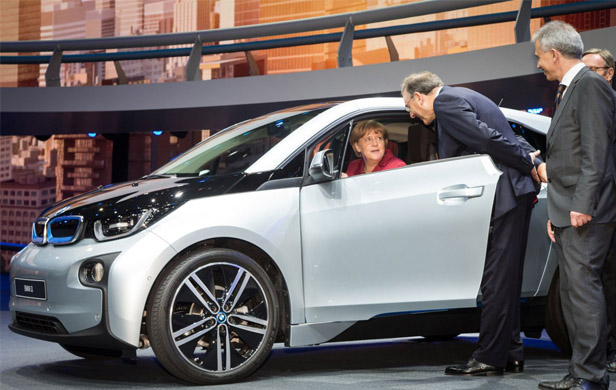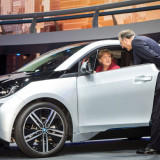
BERLIN – Germany blocked the introduction of tougher European Union emissions rules for cars shortly after Chancellor Angela Merkel’s party received a large donation from three major BMW shareholders, according to newly released parliamentary records.
Opposition parties on Tuesday cited the donation as evidence of an uncomfortably close relationship between Merkel and German automakers.
Following weeks of German lobbying, the environment ministers of the EU’s 28 nations agreed Monday to seek further tweaks to the proposed emissions rules that come into force in 2020.
Just days earlier, Merkel’s Christian Democratic Union had received 690,000 euros ($935,900) from Susanne Klatten, her mother Johanna Quandt and brother Stefan Quandt. The Quandt family holds almost half of the shares in the Munich-based BMW, whose luxury cars on average emit well over the proposed limit of 95 grams of carbon dioxide per kilometre.
Merkel’s party insisted there was no link between donation and the pressure that her government put on other European countries to hold off on the emissions deal.
“The Quandt family has supported the CDU with private donations for many years, independently of whether the CDU was part of the government or in opposition,” the party said in a statement.
The opposition Left Party noted that the decision to block the new emissions rules would directly benefit German automakers such as Daimler, Volkswagen and BMW.
“The suspicion that this corporation bought itself a favourable policy is hard to dismiss,” it said.
The auto industry and its suppliers employ some 740,000 people in Germany.
The Green Party, which is one of two parties holding talks with the CDU to form a coalition government following last month’s election, also criticized the donation, saying it harmed Germany’s image abroad.
In a compromise deal in June, national EU governments and the European Parliament agreed to force carmakers to further slash their average carbon dioxide emissions from a 2015 target of 135 grams.
Germany wants to delay the introduction of the new emissions limit until 2024.


One could hope that Merkel will reconsider her position once she has formed a coalition government.
That aside, the decision to raise the 2015 fleet average standard/manufacturer to 135 grams CO2/km from the original 130 grams is good progress and puts the US and copycat Canada to shame.
In litres per 100km, the EU 2015 standard works out to 5.8 litres/100km while the US/Canada 2016 standard is set at 6.72 litres/100km.
Contrary to popular belief, Canada can set higher standards than the US as this can be done simply by modifying the availability/distribution of models offered in Canada. Keep in mind that the term standard applies to average fuel consumption or emissions aggregated on the basis of total sales of all models in a given year. In other words, if one sell more low fuel consumption models than high fuel consumption models in a given year, a manufacturer will have a good sales-weighted average.
Note for many years California had tougher smog emission standards than the rest of the US and somehow all manufacturers were able to comply for vehicles sold in that state. Since California has roughly the same population as Canada, this proves that a jurisdiction in North America can go for better targets and the manufacturers will meet it. It’s a question of political will.